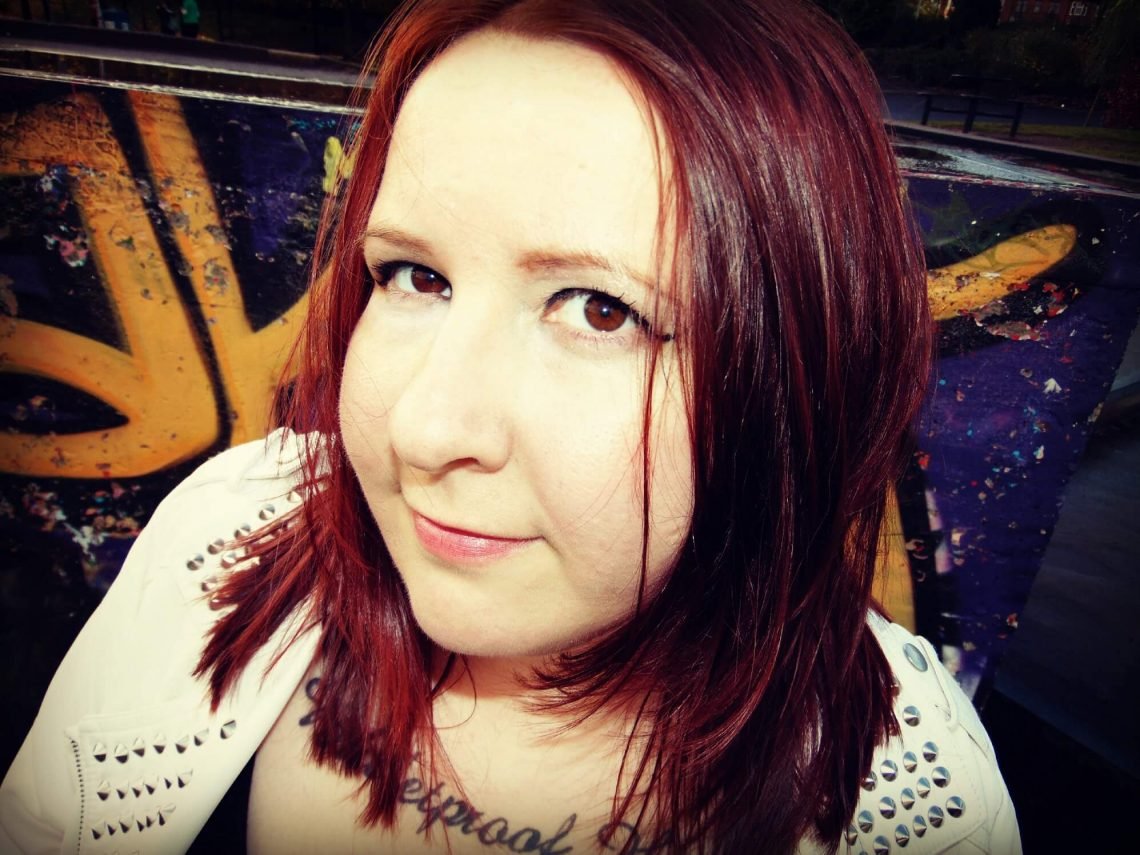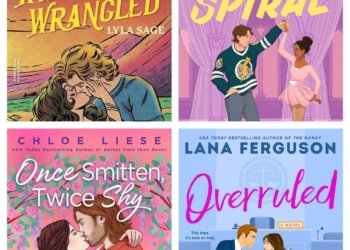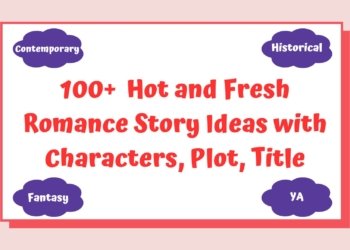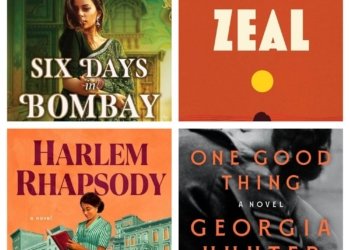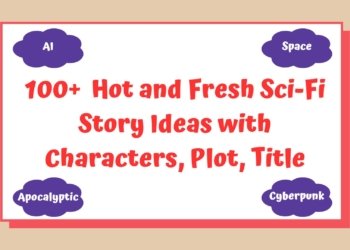No products in the cart.
A Conversation with Victoria Kinnaird, a trending YA Author
Victoria started off as an avid reader, and wrote her first published novel in 2013. It was picked up by a small American press and was quickly followed up by The Red Sun Rises: Fire and Ash and The Red Sun Rises: Seven Letters.
1.1k
SHARES29.8k
VIEWSVictoria found her dreams of writing fiction after being accepted to study Journalism and Creative Writing at Strathclyde University. After graduating with a joint honours degree in Journalism, Creative Writing and English Literature, Victoria spent a few years working as a freelance music journalist and ran her own webzine.
In 2012, she began what was surely the millionth draft of her first novel, The Red Sun Rises, a YA paranormal romance story she’d originally started writing in 2008.
The Red Sun Rises Series was very popular, earning Victoria rave reviews from readers. Eren and Corbijn, the protagonists of the series, won the fan voted Chapter. Con Favourite Couple Award in 2017. They were the only LGBT+ couple featured in the category.
After the success of The Red Sun Rises, Victoria decided to combine her love of rock music with her writing and began working on the first novel in The Keswick Chronicles Series which would be her first foray into contemporary romance writing. Fake It, the first book in the series, was published in 2015 to rapturous reviews. It would go on to receive an Honourable Mention in the YA Category of The Rainbow Awards that year, and was followed by Take It in 2017.
Victoria took a break from The Keswick Chronicles to write Struck, an LGBTQIA+ YA superhero story which would go on to become the first book in The Lightning Project series. Struck was first published in 2018 and was also met with generally favourable and enthusiastic reviews.
In 2019, Victoria left her publisher. She would go on to re-publish The Red Sun Rises Series and The Keswick Chronicles independently. Struck, the first book in The Lightning Project series, was signed to a new publisher, Deep Hearts YA, and was re-released in 2021.
Let’s get started with a quick rapid fire.

Q1.If you could be transformed into one animal, which one would you choose?
A giraffe – I want to be tall!
Q2. What time do you usually go to bed at night?
I don’t have a routine for going to bed unfortunately! I just go when I’m tired.
Q3. Are you more of an introvert or an extrovert?
Introvert.
Q4. Who is your favorite Disney character?
Miguel from Coco.
Q5. Would you rather travel to the past or to the future?
The future – I love a good spoiler.
Q6. What is your last Google search?
It was for Fenty Beauty products, my sister wants one of the lip stains!
Q7. What object do you misplace or lose the most?
Socks. The universe is conspiring to keep me in odd socks forever.
Q8. What is the kindest thing someone ever did for you?
One the anniversary of my first book coming out, my nana gave me a card to say how proud she was of me – I’ll treasure it forever.
Q9. Learn by watching or learn by doing?
Both – I like a lesson format but can’t really learn something until I do it myself.
Q10. Expensive presents or homemade presents?
Homemade presents always!
Q11. What is one missed opportunity that you wish you could have a second chance at?
I had the opportunity to leave school early to study journalism and I didn’t take it!
Q12. What is not a big deal to most people but is torture to you?
People who take their shoes/socks off in public (ie when traveling)
It’s time for a more detailed conversation, Victoria.
You’ve answered our rapid fire brilliantly, Victoria. Now, it’s time for our readers to know more about the person behind the book.
Q. Tell us something about yourself that’s going to make us wonder more about you.
For a long time, I didn’t even consider being a creative writer. I was convinced I was going to be a journalist, specifically a rock music journalist. At my university, my degree was split between journalism and creative writing and I always focused more on the journalism side of things. I did a lot of work on the side for a career in the music industry – I did PR for record labels, worked with various magazines, wrote reviews, you name it! But music journalism is very much a “dead man’s shoes” industry, and at the time, most vacancies were in London. I didn’t really want to move so far away from home, so I kind of drifted away from it and started writing fiction as an outlet for my creativity instead. After that, I was hooked!
Q. Well, that will keep you in our thoughts. So, what books did you grow up reading?
I was always a ferocious reader. I’d read pretty much anything! I started off with the usual pre-teen fare but was always drawn to more paranormal, supernatural or horror books so I loved Goosebumps and Point Horror. I was recommended The Catcher in the Rye bymy English teacher when I was 14 and it remains one of my favourite books. I adored Anne Rice’s Vampire Chronicles and J.R.R Tolkien’s Lord of The Rings as well. Although I read a bit more broadly now, I’m still most drawn to supernatural/horror books! “All illusions of masculinity gone, he rested his forehead against Mr. Anderson’s knee and sobbed until he couldn’t breathe,”Victoria Kinnaird, The Red Sun Rises Series Boxset: Books 1-3
Q. Interesting. What, to you, are the most important elements of good writing?
Honestly, I think the most important thing is to be passionate about what you’re doing. I think some authors feel pressured to “write to market”, but I tend to find that most readers can tell when your heart isn’t in it. If you write what you love, then you’ll enjoy the process and that means even if the book doesn’t sell, at least you had fun doing it.
I think another really important element of good writing is having a distinctive voice, and a clear vision. Having a good editor is really important, but don’t be afraid to fight for something if you know in your gut that it belongs in the story.
Q. Do you hide any secrets in your books that only a few people will find?
I always hide little easter eggs in my books! In “Fake It”, for example, the town the book is set in is called “Wayville” as a reference to Gerard and Mikey Way of My Chemical Romance. There’s another town in that book called “Monroeville”, which is a reference to the My Chemical Romance song “Early Sunsets Over Monroeville”. I also named a character from my Red Sun Rises series after the legendary director Anton Corbijn, as he directed one of my favourite music videos (Nirvana’s “Heart Shaped Box”), so there’s usually a few references to bands and musicians in all my books. In the book I’m writing now (my first adult novel!), the characters make reference to Forever Fading Echoes, who are the fictional band in “Fake It”. I love the MCU and the whole concept of a cinematic universe, so I try to bring some of that overarching feel to my books when I can.

Q. Now comes the most anticipated question that every author must answer. How do you process and deal with negative book reviews?
Honestly, I’m not bothered by negative reviews at all. Luckily, I haven’t had to contend with many so far, but I think my experience as a music reviewer has really taught me that art – no matter the medium – is subjective. Not everyone is going to enjoy everything, and that’s ok. Just because it didn’t work for them, doesn’t mean it won’t work for someone else. When I was first starting out in publishing, I was warned not to read my reviews at all but I really enjoy it! It’s nice to know that your work is appreciated, and even if your work didn’t quite click with the reader, it’s always interesting to see their perspective.
Q. What comes first for you — the plot or the characters — and why?
For me, it’s always characters first. All of my characters have a really distinctive voice, personality and attitude. I can always picture them very clearly, and I hear dialogue in their voice. So usually, once I have a character, I tend to get little bits and pieces of conversation or scenes which I can build a plot around. That can really help shape the plot, because how they react to certain situations is what’s going to move the story forward. For me, my characters are like a guiding light when I’m trying to work on the plot of a story because I know there are certain things they just wouldn’t say or do.
Q. How do you develop your plot and characters?
Well most of my characters showed up fully formed, of their own accord! Before I start writing though, I always put together a profile for each character which includes physical descriptions, important characteristics, personality traits and their backstory. I usually always get a rough idea for their book not long after that! Once I have my characters hammered down, I put together the playlist for the book. That can take a bit of time, but it’s very important, as I’ll listen to nothing but that playlist while I’m writing. When I have the playlist ready, I plot the book out.
As I tend to write series, I have to have the book plotted out before I start writing. I have a notebook at the moment which has the plot outlines for my next four novels in it! I tend to write one A5 page per chapter, which outlines the important beats of that chapter that I absolutely have to include in order to move the story along and make sure everything makes sense. Sometimes at this point, I’ll slot in some of the dialogue I already have thanks to the characters! That plot outline is really important and sticks with me until I’m finished my first draft, but it’s never set in stone. Sometimes, when I’m writing, a plot point may happen a bit sooner than I expected, so chapters get combined. Or, if I get caught up in an amusing tangent, some events may get pushed back into another chapter. But I always stick to the general outline.
Q. What does literary success look like to you?
I have a realistic version and a total dream version! Realistically, I think literary success is just finding your readers and entertaining them. If you have readers who have found your books, enjoyed them and if you’ve given them a bit of joy, then as far as I’m concerned, you’re a successful writer.
But in my wildest dreams, I’d love to be able to find enough success that would allow me to leave my day job and write full time. I dream about TV and film adaptations of my books. I think my paranormal romance series, The Red Sun Rises and my superhero series The Lightning Project would be great series on a streamer like Netflix or Prime Video, but I picture my book Fake It as a teen rom-com film!
Q. Let’s talk about your book. Tell us about it. No major spoilers.
I have six books out at the moment but for the purpose of this lovely interview, I’m going to talk about Fake It, which is the first book in my “The Keswick Chronicles” Series. Fake It is my love letter to rock’n’roll, and all the bands I grew up loving. I had just finished my paranormal romance series when I got the idea for Fake It, and I just loved it from the minute I started working on it.
Fake It is the story of Jack Daveyson, a shy high school senior who’s more interested in getting his band back together than going off to college. He’s a really talented guitarist, but as the only openly gay teenager in his small town, he keeps a small circle of friends. After spending the summer on tour with his roadie dad, and with graduation looming, Jack decides he wants to be a professional musician. He just needs to find a singer for his band!
JJ Keswick is the polar opposite of Jack – he’s rich, confident, popular and athletic. He’s also a really great singer, and has lost his way a bit so he auditions for Jack’s band. Much to Jack’s surprise, JJ is a really good fit with the band so he begrudgingly lets JJ join Forever Fading Echoes.
Over the course of the book, they become friends and it’s not long before romantic feelings develop between them. But JJ is torn between being the person everyone thinks he is, and pursuing the possibility of who he could be with Jack.
It’s a coming of age novel, with a bit of swoon-worthy romance and a lot of awesome music! If you ever shopped in Hot Topic, this is definitely the book for you.
Q. What part of the book did you have the hardest time writing?
I actually didn’t struggle much with Fake It. It all fell into place really quickly and I loved writing it. It felt like I was combining my two great loves – music and writing – and so it was a pleasure to work on it. For me, the hardest part of writing any book is finding the time. I work full time, alongside promoting the books I’ve already released, so finding the time to sit down and write can be tricky. “We’re together, Eren. You and I, there is something between us that is much bigger than being boyfriends.” “Really?” He smiled at me, a soft shy smile that made my stomach flip. He was beyond my wildest dreams, perfect in every way I hadn’t realized I wanted. I put my hand on his leg, curled around his knee, and watched the world go by.”Victoria Kinnaird, The Red Sun Rises Series Boxset: Books 1-3
Q. Would you and your main character get along?
Absolutely! I spend a lot of time with my characters while writing, so it’s important that we all get along. Jack, from Fake It is a very quiet character in a lot of ways, but he’s very passionate about music which is obviously something I can relate to. I can also relate to his desire to make a living doing what he loves, although I don’t think I was ever as optimistic as he is.
JJ from Fake It and I are very different, but I have a lot of affection for him and I do think we’d get on well, although I think I’d probably be very protective of him if he was real.
Q. What are the essential characteristics of a hero you can root for?
I think it’s important to be able to understand where your hero is coming from, and why they do the things they do. You have to have common ground with any character you want to root for. Luckily, there are a lot of universal emotions, issues and reactions that I think we can all relate to! I also tend to connect to characters who have a similar sense of humour to me.
Q. Let’s talk about the process of writing. When you’re writing an emotional or difficult scene, how do you set the mood?
This is where my playlists come in! I always tend to know what’s going to happen in the big scenes and where they’re going to happen in the story, so I can plan my playlists accordingly. There are certain songs that just fit with the moment, especially because music is such a big part of my life, there are songs which always conjure a specific memory or emotion which I can then use in my writing.
Q. What was your hardest scene to write?
If we’re talking hardest scene of all time, I killed off a main character in the third book of my paranormal romance series and was in absolute bits about it for days. I’m not really one for crying, but I definitely shed a tear when I killed that character off. He meant so much to me and to the other characters in the series, so writing his end – and the aftermath for the other characters – was very painful.
Q. It’s been fun. Now, before we wrap this up, do you have any suggestions to help me become a better writer? If so, what are they?
I think it’s so important to read as many books as you can – read in the genre you write in, and you’ll subconsciously learn the beats of that genre without even realising. Reading outside the genre you write in will open you up to the possibilities of what you can do. I think you can learn so much about voice, plot and character just by reading.
My other tip would be just to write as much as you can. Even if it never sees the light of day, just write! It’s like playing an instrument, or dancing, or any activity really – the more you do it, the better you’ll get!
Related Posts
8 Most Anticipated Spicy Romance Books of 2025
Hey, romance aficionados! Ready to add a little spice to your reading list? February 2025 is here, and it has...
100+ Romance Story Ideas with Plot, Characters, and Titles for your next Bestseller
Are you ready to dive into the enchanting world of romance writing? Whether you’re a seasoned author or just starting...
10 Most Anticipated Historical Fiction Novels of 2025
Whether you're looking for a page-turning mystery or a multigenerational epic, these books offer new perspectives on history. Get ready...
100+ Fresh Plot, Characters, and Titles for your next Sci-fi Novel
Welcome, fellow dreamers and storytellers! If you’ve ever found yourself staring at a blank page, yearning for inspiration to strike,...
About Us

Trenzle
Where Trends are made and discovered
Trenzle is your official source of discovering the latest people, work, and ideas that deserve to trend. Discover Authors and their books, Creators and their work, People and their opinions, and Stories from around the globe.
Learn more
Latest Posts
Trenzle Top 10 Trending Free Book Deals for February 11, 2025
February 11, 2025
8 Most Anticipated Spicy Romance Books of 2025
February 6, 2025
Categories
© 2023 Trenzle - Online Author News & Magazine
